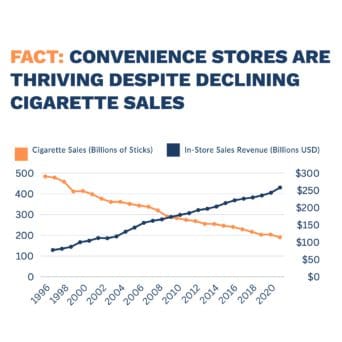By Kate Conquest
When CityHealth launched its inaugural policy package in 2016, initiative leaders wanted to empower city leaders to take action by developing a curated menu of policy solutions within their grasp. Both at the onset and when the policy package was revised in 2021, there was an intentional focus on policies that are generally within the authority of localities. However, state efforts to preempt local authority have increasingly impacted the ability of local leaders to adopt CityHealth policies.
According to the health policy nonprofit ChangeLab Solutions, “preemption is a legal doctrine that allows a higher level of government to limit or even eliminate the power of a lower level of government to regulate a specific issue.” In and of itself, preemption is not inherently harmful to cities. Depending on how it is structured, it may set either a floor or a ceiling for cities. Floor preemption occurs when a state sets a certain threshold — a statewide minimum wage, for example — upon which cities may build if they wish. In these cases, cities must abide by a statewide standard but still retain local authority to raise above the minimum standard. Floor preemption may enhance health-promoting public policy, such as the Tobacco-21 effort that gained momentum at the state level before becoming federal law.
The inverse — ceiling preemption — restricts cities’ abilities to exceed a set standard. In ceiling preemption cases, states explicitly preclude cities from passing laws that exceed the state standard or, in some cases, prevent cities from legislating within a certain policy domain. Some states, for example, assert that wage and benefit matters or indoor smoking laws are exclusively under their purview. In states across the country, ceiling preemption efforts have increased in recent years — including some cases that have hampered progress on evidence-based public health actions.

CityHealth Policies and Preemption: The Data
CityHealth works with the 75 largest U.S. cities to adopt 12 evidence-based, health-promoting policies. Over half (55%) of cities in the CityHealth footprint are preempted by state-level action in at least one policy area, 12% are preempted in two and 12% are preempted in three. The states that preempt their cities most heavily (in three of the 12 policy areas) are Arizona, Kentucky, Oklahoma, and Tennessee, which include nine CityHealth cities. Four policies are preempted in more than 10% of our cities: Smoke-Free Indoor Air (preempted in 12% of CityHealth cities), Safer Alcohol Sales (preempted in 16% of cities), Healthy Rental Housing (preempted in 19% of cities), and Earned Sick Leave, which is preempted in 44% of cities.
These data are current as of December 2023. Of note, there are some examples of state action currently being considered or litigated that are not captured by these numbers. For example, Ohio recently signaled a second attempt to preempt local authority over Flavored Tobacco Restrictions. Another Ohio bill has divided courts over whether it preempts localities from passing Earned Sick Leave laws, and a sweeping Texas preemption bill is being actively litigated in courts.
CityHealth’s policy package is flexible by design, with multiple pathways to achieve an overall medal. For an overall gold, silver, or bronze medal, cities must earn five individual policy medals at that medal level — but can do so with any of the 12 policies. However, those pathways shrink with every policy that is preempted. Some cities have only three quarters the number of policies available to them compared to their peers in other states, hindering the opportunity to earn an overall medal. City leaders have described state preemption efforts as having a chilling effect on their ability to pass CityHealth’s policies, finding themselves unable to act despite public support.
When cities are unable to adopt health-promoting policies, residents often have fewer healthy choices that can result in positive health outcomes. Interventions like Healthy Rental Housing, Smoke-Free Indoor Air, and Earned Sick Leave all target the social drivers of health and help prevent ill health before it starts. Cities in Massachusetts have adopted Healthy Rental Housing policies where rental units are proactively inspected for hazards like lead paint and asbestos; whereas cities in Georgia are prohibited from doing so. Cities in Washington State have passed Earned Sick Leave ordinances that increased paid time off for thousands of workers to care for themselves or a family member when they are ill without risk of losing their job; Texas cities are prevented from providing the same protection to their working residents.
Each of CityHealth’s policies have an evidence base that shows their effectiveness at promoting community health. While heavily preempted cities may find it difficult to earn a CityHealth medal, the larger outcome is that cities have fewer options for making real, lasting impacts in people’s health and everyday quality of life.
What’s Next
Preemption is not new, of course, and while it is not inherently detrimental, ceiling preemption efforts —as noted above — are increasing at a noticeable pace. The weight of preemption on the CityHealth policy package is markedly heavier than it was five years ago, and city leaders have vocally expressed concern that they have limited agency to enact policies that improve the health of their cities. CityHealth will continue to track preemption efforts and support cities in promoting equity and providing healthy choices to everyone in their communities.
Kate Conquest is CityHealth’s senior program associate.




